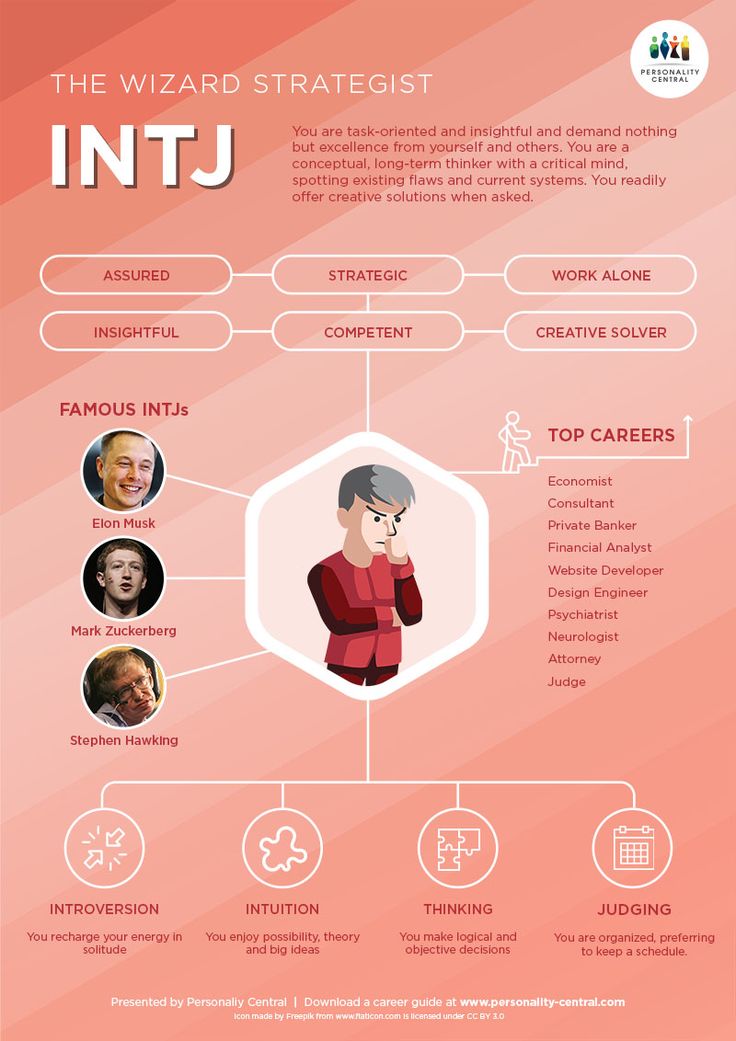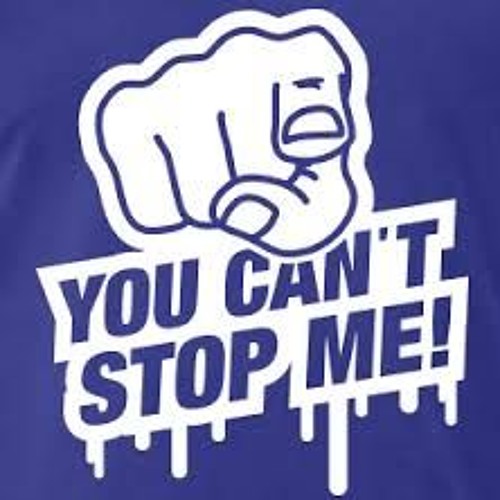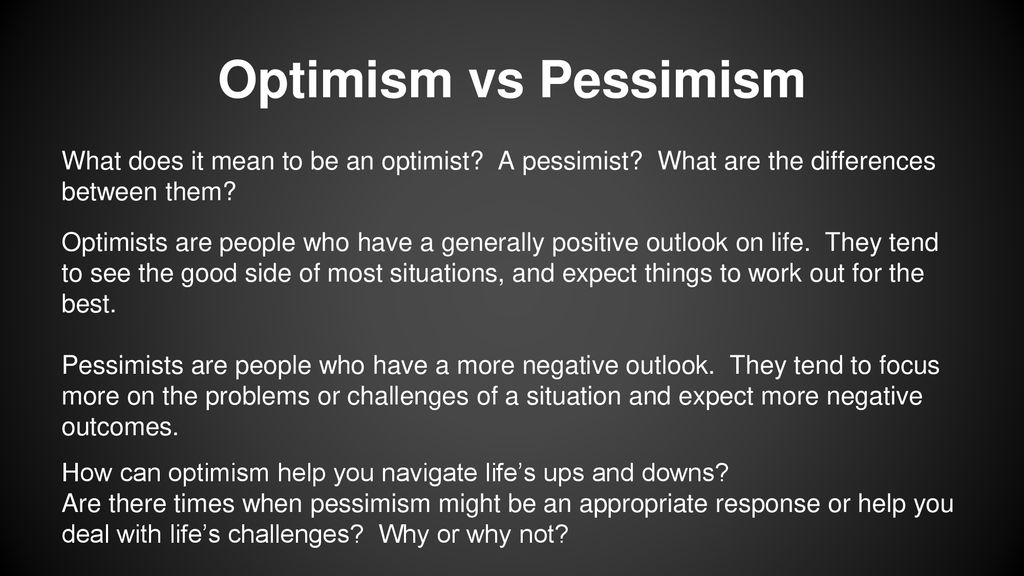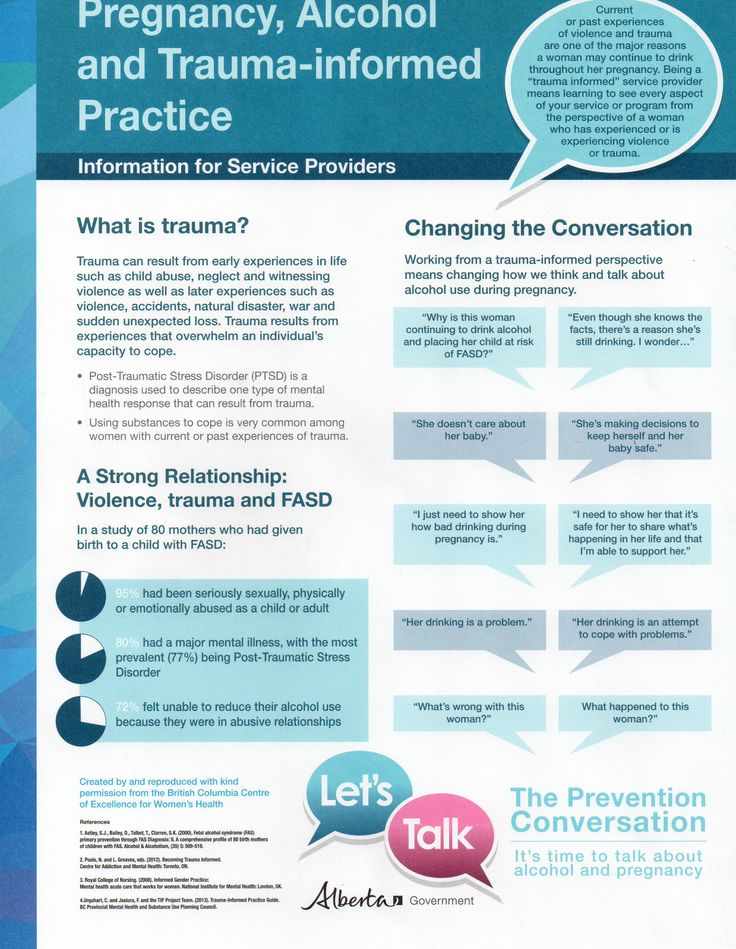Salesperson personality type
What Kind of Sales Personality Do You Want? (According to the Myers Briggs Test)
Salespeople are not all created equal; some use direct value-based tactics while others may prefer to lay on the personal charm. An individual’s personality will influence the kind of strategies they use when trying to convince customers to spend money. It is useful for a business to comprehend the personality type of employees, especially during the recruiting process to see if it aligns with the company’s style.
The Myers Briggs Type Indicator is one test that enterprises can use to learn the characters of its salespeople. Not everyone is suitable for the sales department, and a personality test helps to narrow down the options. A good comprehension of personality types can help sales heads to motivate their teams accordingly.
While any personality type can make a good potential sales person, these profiles are seen as particularly suited to sales roles:
1) ESFJ
This Myers-Briggs personality type is considered the best for after sales professionals and account managers. An ESFJ is motivated to help others. This individual is quick to notice when another person is in need and does everything to provide it. Regardless of the size of the task, an ESFJ will put all effort into getting the best results. The enthusiasm of the ESFJ is suitable for sales because an individual is energised most of the time and is resilient to rejection and negative feedback. Up-selling to existing customers can take a while, and it helps if a representative can maintain the same passion throughout the process.
2) ESTP
A salesperson with this personality is most useful for short-term projects – such as new client acquisition or closing sales after others have put in the groundwork. ESTPs are all about immediate results, and they achieve them with style. Such a sales representative would thrive in tasks that involve high risks like a sales contest with a lucrative bonus.
3) ENTJ
Considered as born leaders, an ENTJ personality type makes a good salesperson because they are outcome driven.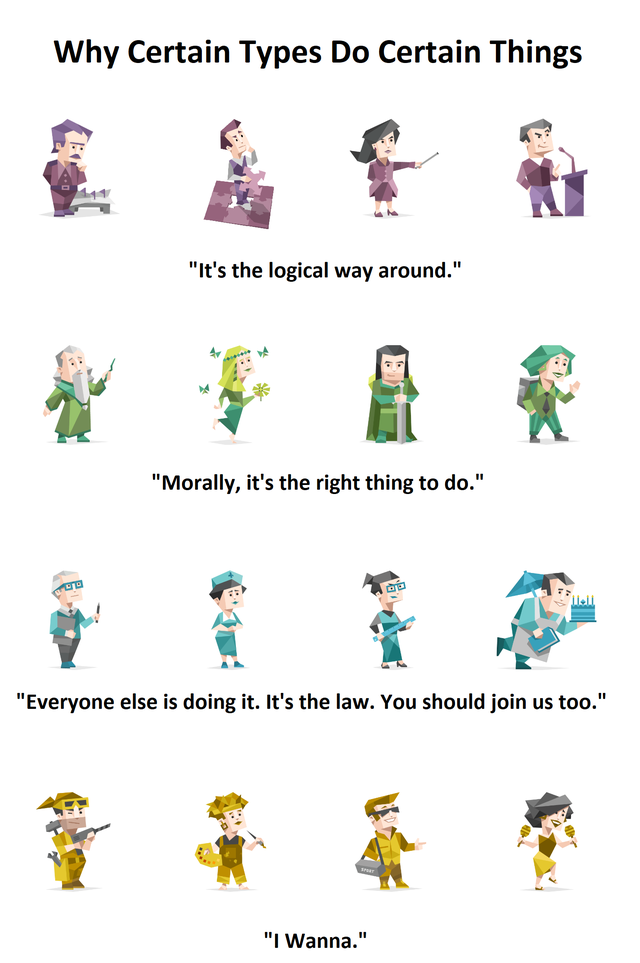 An ENTJ salesperson will be prepared to play a long game and nurture a lead through to a successful close. However, they may have trouble in a setting where consensus is required for decision-making, so may thrive as independent field sales agents. ENTJs are creative when crafting solutions, and that is important when dealing with challenging sales strategies.
An ENTJ salesperson will be prepared to play a long game and nurture a lead through to a successful close. However, they may have trouble in a setting where consensus is required for decision-making, so may thrive as independent field sales agents. ENTJs are creative when crafting solutions, and that is important when dealing with challenging sales strategies.
4) INTJ
Although innately independent, INTJs don’t have trouble following a leader. This personality type works best when tasked with providing explanatory perspectives. A salesperson with this personality is effective at spotting patterns, which can be invaluable when developing a sales plan. Some companies set their INTJ team members to work in marketing roles, or preparing a sales case to be implemented by other colleagues.
5) ISTP
When problems arise with a company’s sales strategy, it helps to have an ISTP on the team. The flexibility of this personality type makes it easy to adapt to different situations.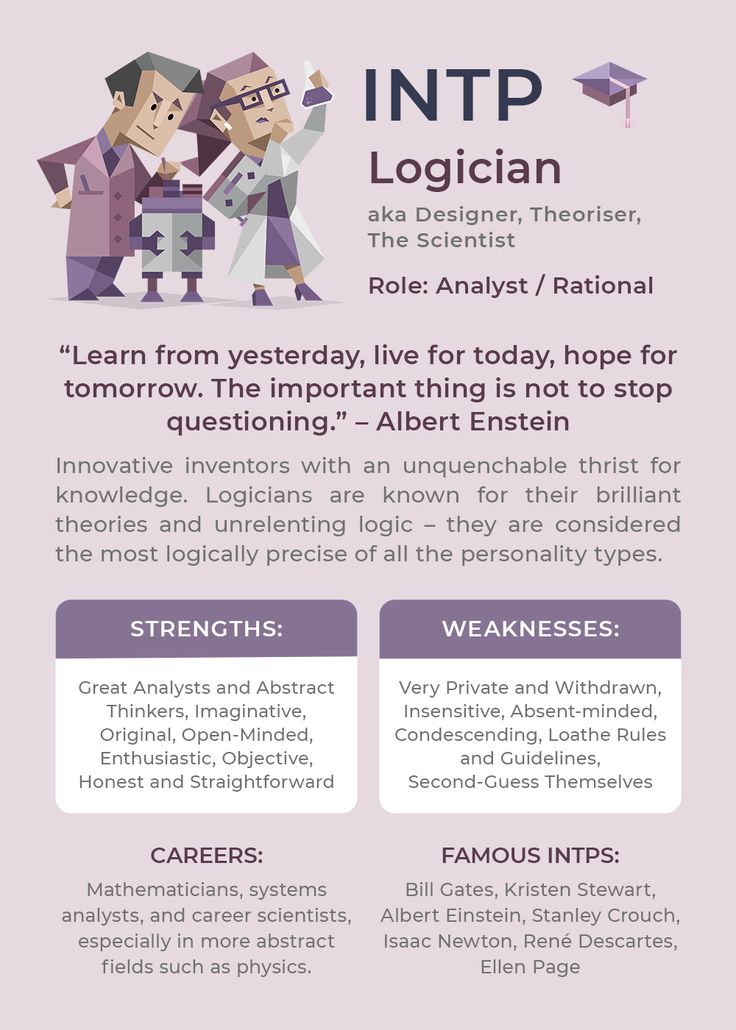 ISTPs are also adept at picking apart facts to create solutions. Many ISTPs make good sales managers and team leaders.
ISTPs are also adept at picking apart facts to create solutions. Many ISTPs make good sales managers and team leaders.
Which MBTI Type is the Best Salesperson?
A Myers-Briggs test will not tell you how successful an individual will be at a sales role, and profiling is no substitute for regular training and individual KPI assessment. ESFJ types may be a favourite for companies looking to improve their sales, but it is important to understand that no one personality type can be defined as perfect for a specific role. Personal traits only provide an understanding of how an individual thinks and approaches situations. Besides the Myers-Briggs Type Indicator, a company must factor in other elements that make a good salesperson such as transparency, patience and trust.
Using the MBTI, employers can avoid underutilising their salespeople and apply the right motivational tactics to push them. Whether it’s assembling a first-rate team or booking a training seminar, an enterprise should evaluate the personality types of its salespeople carefully.
Evaluate the personality types of your salesforce with our MBTI workshops and make your sales team a success.
Get a Quick Quote
Category
- All Topics
- Engagement
- Event Organisation
- Graduate Programmes
- Myers Briggs (MBTI)
- Productivity
- Psychometric Workshops
- Team Building
- Wellbeing
Sort By
Sort Results ByNewestOldest- Reset
A massive, massive success. See you next time!
See you next time!
PA Consulting - Lego Master Builder
A great set of events to help keep spirits up and teams connected during lockdown. Especially appreciated the flexible and creative approach. Many thanks.
Adele Cox
Excellent fun and fully engaged activity, completely loved it ???? Thank you so much.
Himabindu Vutukuri
I thought the event was excellent - informal, fun & very engaging!
B. A. Nimmo
I really enjoyed the exercise and was honestly quite surprised at just how engaged with the activity I became.
Richard White
Enjoyable virtual event. I liked the theme and imaginative art class to make it a fun group event.
Conor Morris
A very entertaining experience... we had to make decisions and work together.
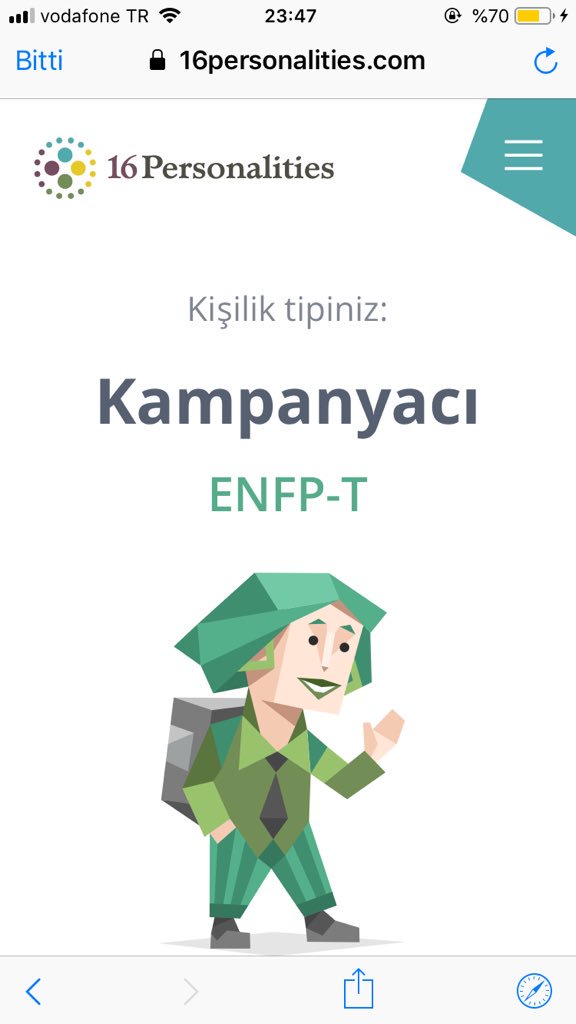 And we also got a sense of achievement - I can’t draw and produced 2 decent superheroes. An excellent activity.
And we also got a sense of achievement - I can’t draw and produced 2 decent superheroes. An excellent activity.Elizabeth Donachie
A great event which made was a lot of fun! At first I was nervous to try the task but by the end I wanted to do more!
Lisa Redpath
Enjoyable event and well run, enjoyed our 3 hours with EML.
David Rodman
Good afternoon of activities and being in the winning team topped the day, thank you for the prize.
Adrienne Cousins
Many thanks to Neil and Ruth for leading our virtual team building exercise... Many laughs were had while scrambling to collect the twenty items...!!! The Murder Mystery was my favourite and my team winning was the icing on the cake. The Haka showed how uncoordinated we are but the laughs ...just proves what an enjoyable experience we all had.
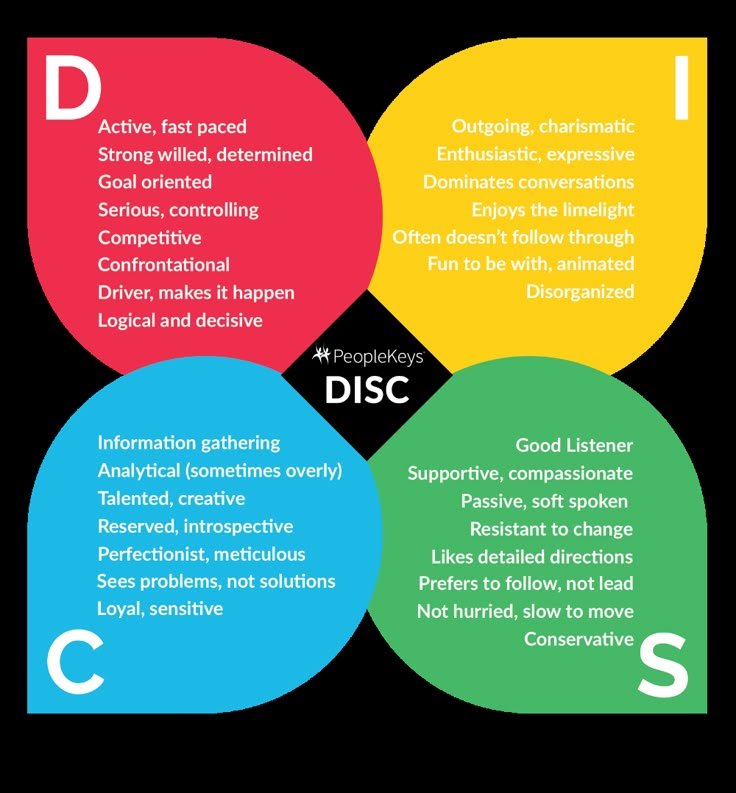
Suzanne Mitchell, Beckton, Dickinson & Co
Our team really enjoyed the event - they are already asking when we can do another!
Karen Wilson, Zhero
The EML virtual team building event was well organised and entertaining. Tasks were interactive and challenging in a fun and relaxed environment.
Brandon Lee Maharaj
It was fun and I loved the energy this brought out of us as a team.
Clinton De Klerk
Great and fun team-building event. Enjoyed!!!
Christopher Dahwa
Perfect. From initial enquiry to event day. I’m really pleased with the session. We had a short meeting pre activities and then 4 fun team games. The event staff were really helpful and professional all the way through.
James
EML delivered a great virtual training afternoon for our new Graduates, Undergraduates & Apprentices.
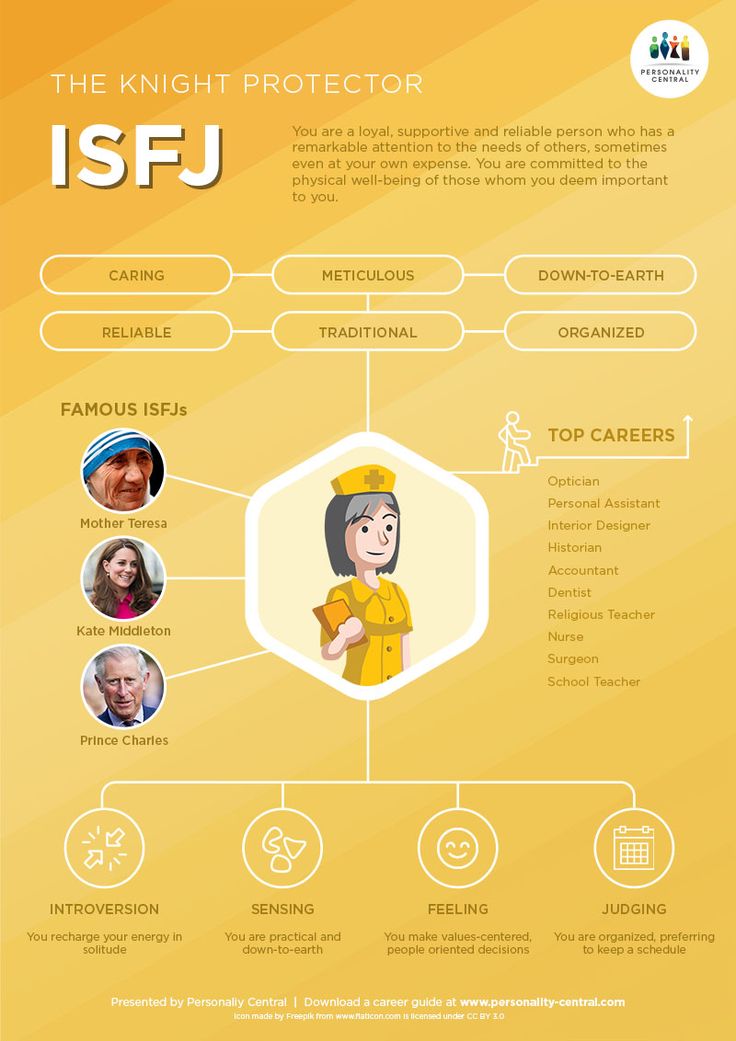 Everyone found it to be a fun and engaging afternoon.
Everyone found it to be a fun and engaging afternoon.Victoria Goodwin
Super fun virtual event, the team are friendly and entertaining. Thank you so much Neil and Jon.
Joynab
Thank you EML for a great virtual team building Christmas party. Everyone had a great time and this virtual option created a great opportunity to stay in touch with our colleagues and have some Christmas fun. I've received lovely feedback from staff - they really appreciated the event.
Sue Quick
Thanks for organising and facilitating our online Christmas social. I've had some great feedback from the participants and it was lovely to do something together even though we couldn't meet face to face.
Michelle Hammersley
Great fun, thank you.
Simon Elkins
Well organised and good fun - many thanks to EML Team.
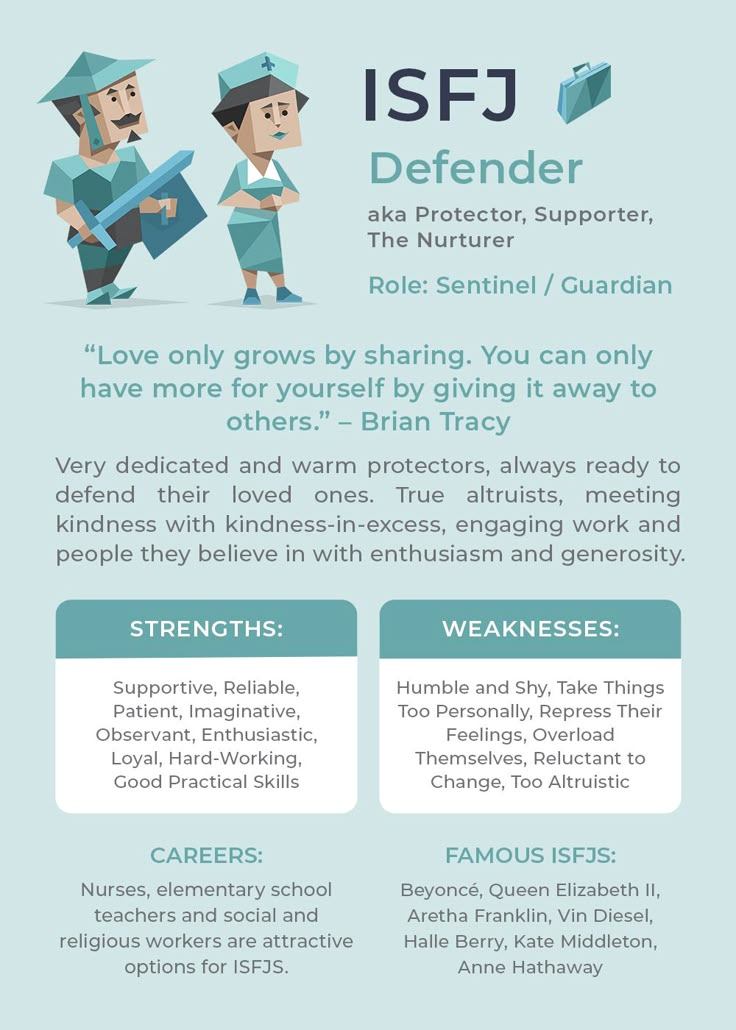
Mark Roberts
Great fun, engaging and well organised :o)
Belinda Mitchell
Thank you so much for organising a very interesting and fun event... it gave staff an opportunity to work together in different ways and helped to develop our team skills. I'd recommend similar online events to other organisations.
Isla Boadle
Great fun had by all. Both inclusive and engaging. We will be looking to use EML again next year.
John Williams, ECCTIS
EML Team | Unit 5, 130 Worcester Road, Droitwich, Worcestershire WR9 8AN | UK Company Reg. 04447878 | © 2021
The Secret to Managing Salespeople? Start with Their Myers-Briggs Personalities
While it's true that not everyone is a perfect fit for sales, most people just need the right motivation and management to thrive. And understanding your team's personality types (as well as those of potential hires) can help you motivate, develop, and train them more effectively.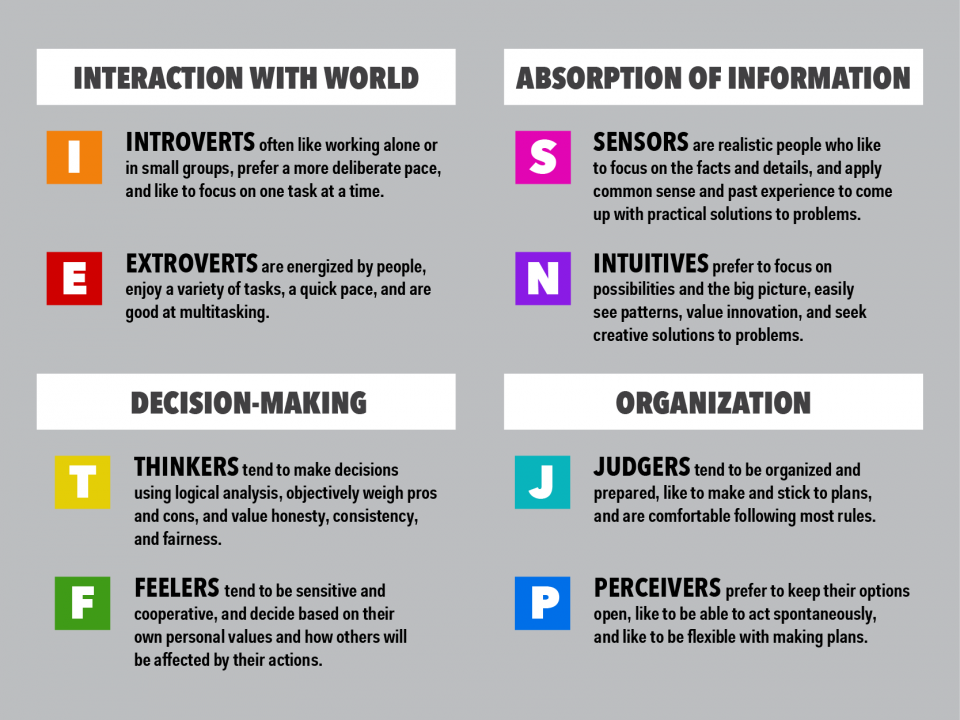
One of the best ways to approach personality in a concrete way is by using a personality framework such as MBTI (Myers-Briggs Type Indicator).
Sales Personality Types
As a reminder, the Myers-Briggs Type Indicator® identifies 16 personality types that emerge from your preferences. Those preferences are:
Administering the Myers-Briggs test allows you to discover your employee's preferences, and it assigns each of them a four-letter "type" that encompasses their personality.
This type can then be used to understand the individual's motivational factors.
Identifying salespeople's Myers-Briggs personality types is a great place to start when attempting to understand motivational factors. But how do you know which types will thrive in sales?
What personality types succeed in sales?
- ESFJ (The Provider)
- ESTP (The Explorer)
- ENTJ (The Visionary)
- INTJ (The Intellectual)
- ISTP (The Detective)
- INFJ (The Counselor)
- ESTJ (The Commander)
1.
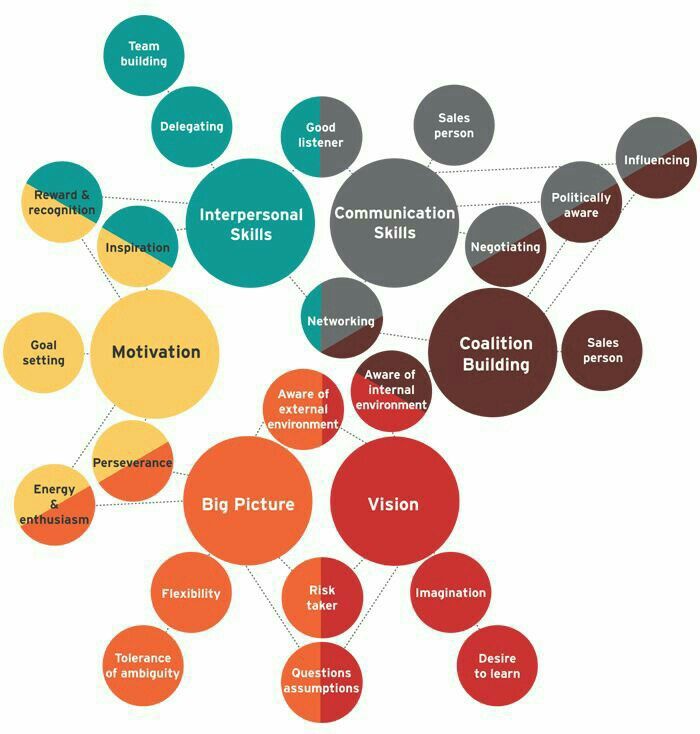 ESFJ (The Provider)
ESFJ (The Provider)ESFJs are compassionate, enthusiastic, and friendly. Due to their Extraversion score, they exude energy when working with people. This helps them maintain the same amount of passion for the work regardless of its ups and downs. In addition, due to the combination of their personality traits, you'll find that ESFJs are motivated to help people (an excellent trait in sales) and adept at communicating and building rapport. All of these factors combined make ESFJs successful in sales roles.
2. ESTP (The Explorer)
ESTPs are personable, practical, and detail-oriented. Because ESTPs think logically, they may have difficulty capitalizing on the whims and handling the objections of particularly emotional prospects. However, ESTPs are observant and pick up on things others might easily miss. They're also truth-seekers, and they are not uncomfortable with getting pushy to make a sale as long as it makes sense for the prospect. With this in mind, ESTPs function best as closers.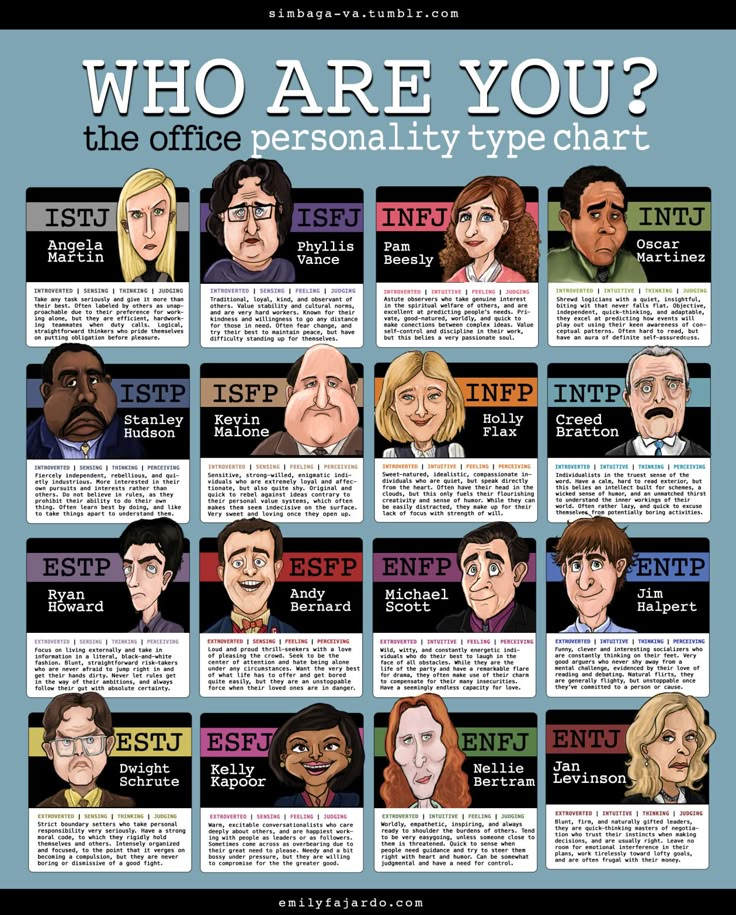
3. ENTJ (The Visionary)
ENTJs are talkative, high-achievers who love to explore new ideas. Because they're outcome-oriented and easily able to see the "big picture," ENTJs are great for organizations with long sales cycles and structured sales processes. They're skilled promoters, if a bit intense, who easily take charge of social situations.
4. INTJ (The Intellectual)
INTJ is a less obvious personality type for a sales role due to their Introversion and Thinking traits. INTJs will quickly become drained by too much social interaction, which may sound counter-intuitive in sales.
However, introverts can be deceptively good at sales, particularly in subtler roles with more emphasis on inbound processes than pounding the pavement. INFJs are adept at analysis and logic, so they can excel when creating sales plans, perfecting processes, and spotting tactics that aren't working. They're also great at research, which can make prospecting a breeze.
5. ISTP (The Detective)
Similar to the INTJ, ISTPs are more reserved and find social situations taxing.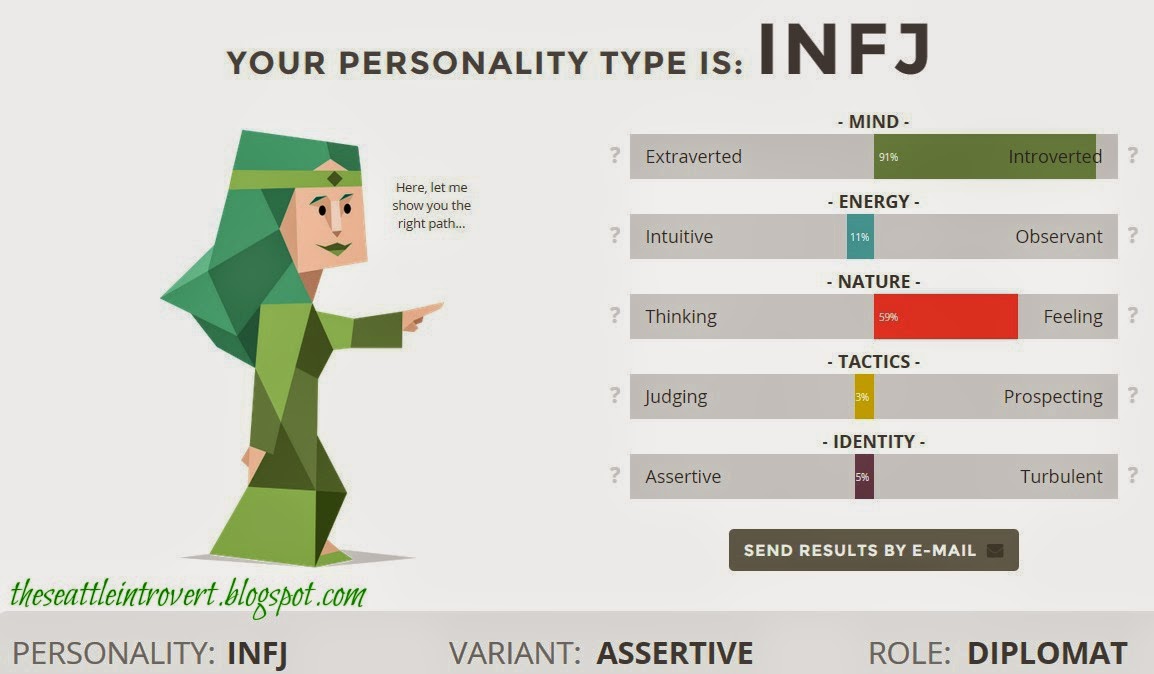 At the same time, ISTPs are adaptable, self-sufficient, and spontaneous, which are all great traits for fast-paced sales roles. Because they're logical and detail-oriented, they're great "process people" and can excel as sales leaders and managers.
At the same time, ISTPs are adaptable, self-sufficient, and spontaneous, which are all great traits for fast-paced sales roles. Because they're logical and detail-oriented, they're great "process people" and can excel as sales leaders and managers.
6. INFJ (The Counselor)
For INFJs, the Introversion score is a little misleading. While too much social interaction can be exhausting for them, many INFJs are ambiverts by nature and highly attuned to the emotions and feelings of the people around them.
In addition, INFJs tend to think both creatively and logically, tapping into their "whole brain" when applying skills and completing tasks. These two traits make them empathetic communicators and excellent troubleshooters, which is valuable in many sales roles.
However, INFJs are also passionate about making the world a better place and will become easily drained if there's no altruistic aspect to their work. Many INFJs are energized by ongoing and constant improvement, working hard to impact the lives of those around them, and this makes them excellent at creating structure and processes for the team.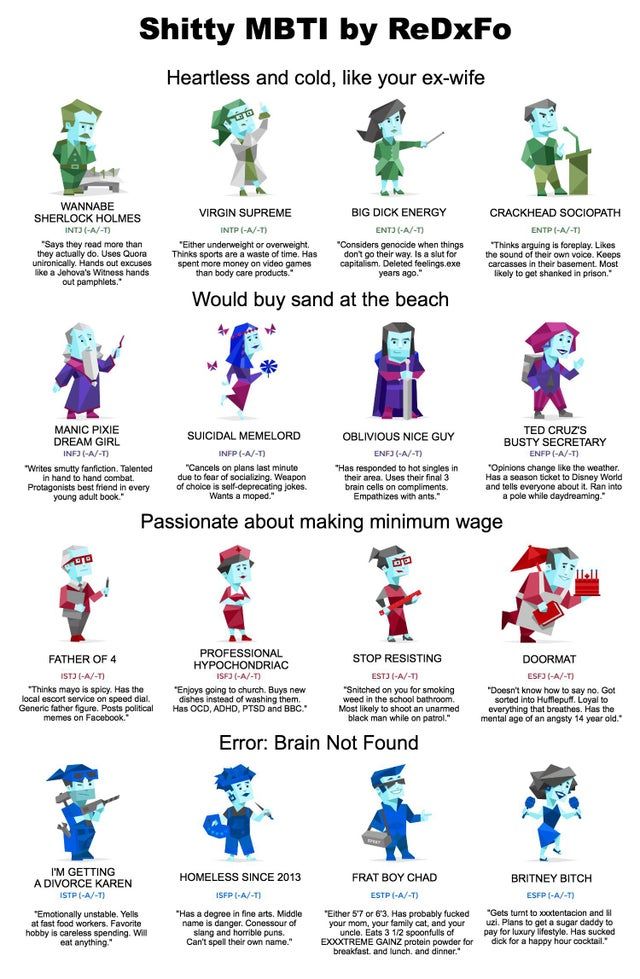
7. ESTJ (The Commander)
If you need a sales rep to come into an already-established process and thrive, the ESTJ is as good a hire as any. Their unique trait combinations make them uniquely able to abide by existing rules and structures. They take direction from leadership well and are self-motivators who hold themselves accountable. At the same time, they're high-energy individuals who thrive on social interaction. ESTJs are detail-oriented, making them great listeners who take action on what prospects say.
Managing and Motivating Salespeople Based on Personality Type
Now that you know more about the Myers-Briggs personality types and how they relate to sales, you can then make sales management decisions based on personality traits.
Because it's not always feasible to create a sales management plan based on each team member's specific profile, I've created a quick cheat sheet to help you manage all the 16 Myers-Briggs personalities like a pro, grouping each type into the following four commonly used buckets:
Explorers
Charming, smart, enthusiastic, and energetic —explorers make some of the best salespeople around.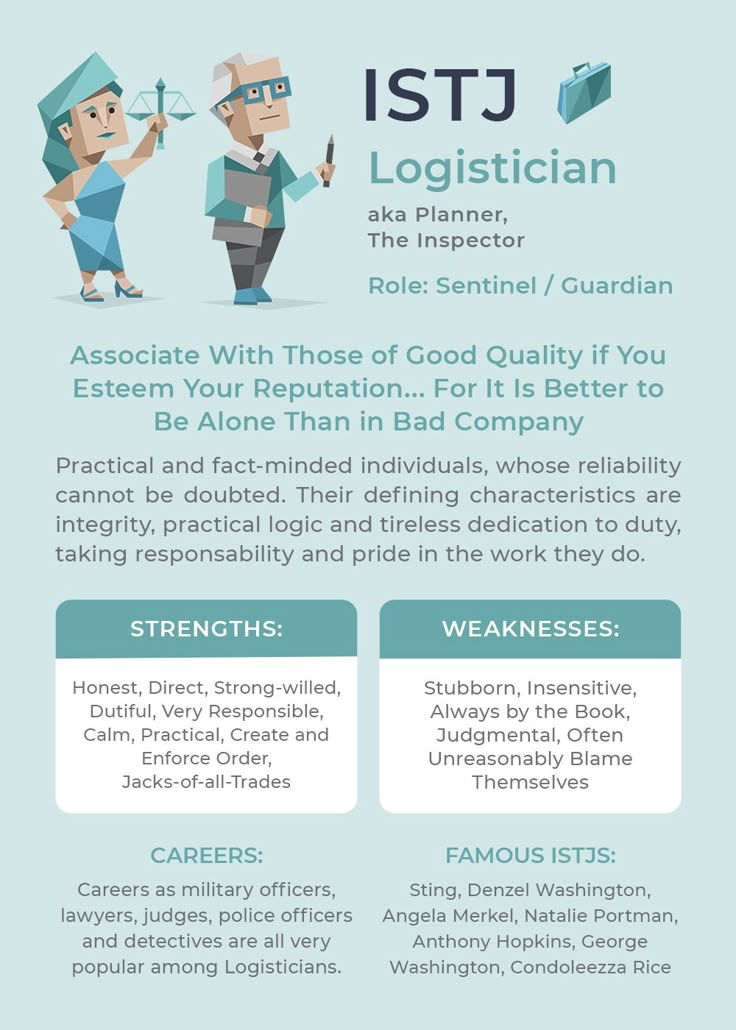 They are social, enjoy being held to challenging metrics, and always find new ways to solve old problems.
They are social, enjoy being held to challenging metrics, and always find new ways to solve old problems.
To motivate this group, you'll need a variety of strategies. ESTPs require a fun but firm manager. They live on the edge, so enlisting them to participate in high-risk, high-reward sales contests might yield impressive results. ISTPs like to keep things practical. Give them the task of searching for technology that will increase team efficiency and you'll see them rise to the occasion.
A firm schedule is in order for your ESFPs.You can harness their spontaneous nature with a little 9-to-5 rigidity.. And for ISFPs, it's good to be in the details. They're artistic and charming, but might require a goal-oriented strategy to channel that creative energy into sales stats you can both be proud of. For instance, try holding them to activity metrics, like sending a certain number of emails every day or breaking their monthly or quarterly quota into weekly numbers.
Diplomats
"Diplomatic" might not be a word commonly associated with salespeople, but it's crucial to have a few of these personality types on your team.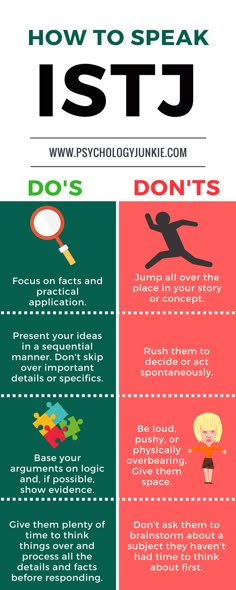 They may seem quiet or overly eager to please (which is not always a good thing in sales), but they're also charismatic and hard-working until the end. In other words, diplomats are the salespeople you want by your side when you're three hours and $10,000 shy of your quarterly sales deadline.
They may seem quiet or overly eager to please (which is not always a good thing in sales), but they're also charismatic and hard-working until the end. In other words, diplomats are the salespeople you want by your side when you're three hours and $10,000 shy of your quarterly sales deadline.
So how do you motivate them? INFJs really appreciate quality time. Try not to miss their weekly check-ins and always ask how they're doing. For INFPs, acknowledgement is key. Did they break a personal record last quarter? Give them kudos at your next all-staff meeting.
Teamwork is an effective way to motivate ENFJs. Enlist them to mentor junior team members so they can teach others their tried-and-true selling tricks. Your ENFPs need a creative outlet every once in a while. Those may be few and far between in the world of sales, but you might consider allowing them to create a piece of sales enablement content for other reps instead of handing that task off to Marketing.
Analysts
Your most curious, bold, innovative, and strategic salespeople fall under the analyst group .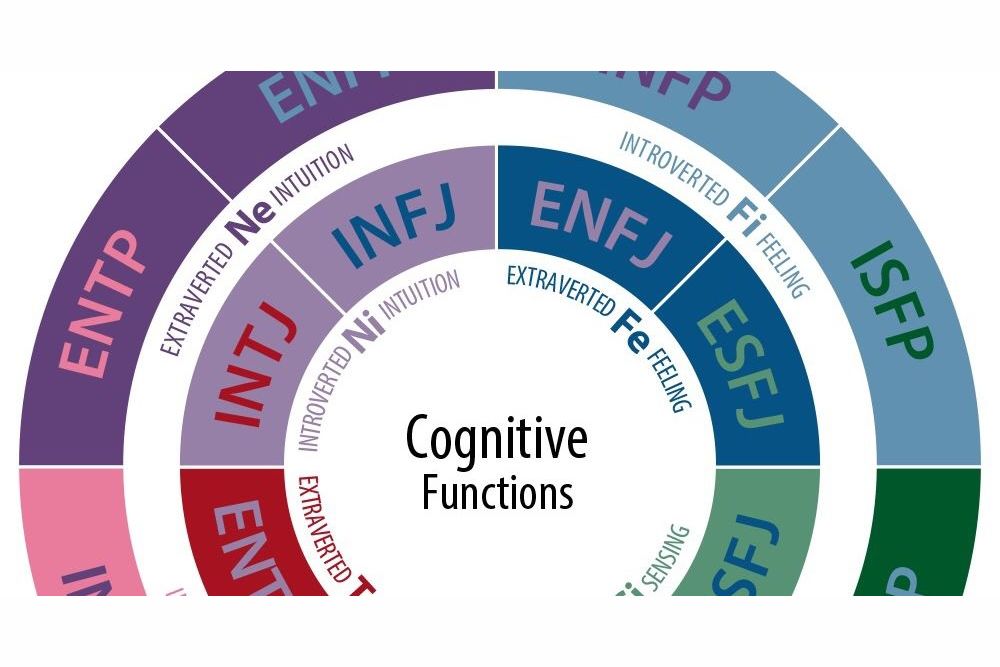 They're not satisfied with the processes or explanations your company has relied upon for years, and they love a good challenge.
They're not satisfied with the processes or explanations your company has relied upon for years, and they love a good challenge.
INTJs do their best work when you, as their manager, outline a path to success. Have lofty goals for revamping your tired CRM workflow this quarter? Assign the task to your INTJ and put together a strategic plan for how they will succeed.
ENTJs are born leaders, so dangling a team mentor or sales management position in front of them is a great way to keep them focused and fulfilled. Oh, and ENTPs would prefer if you didn't beat around the bush. Be open and honest about their performance this quarter, and you'll receive respect and loyalty in return.
Sentinels
This unique group of personalities is here to keep your team grounded. Practical and detail-oriented, sentinels make great managers and caring teammates. To keep them motivated, consider a few of the suggestions below.
Make sure you keep challenging ISTJs. They love solving problems, so let them solve the most pressing ones facing your team or company — for instance, analyzing a decrease in ASP or crafting new positioning against an up-and-coming competitor. ISFJs rely heavily on specificity from their managers. Make sure their quarterly goals are thoroughly outlined and include an actionable path to success.
ISFJs rely heavily on specificity from their managers. Make sure their quarterly goals are thoroughly outlined and include an actionable path to success.
Speak logically with your ESTJs and you'll be speaking their language. Reorganizing your sales regions? Explain the reasoning to your ESTJ to get them on board first. And be an involved manager with your ESFJs. They're eager to help and will do their best work when you carefully outline their goals and check in regularly to make sure they're aware of and meeting your expectations.
Qualities of Strong Salespeople
Keep in mind that anyone can thrive in sales with the proper motivation and working environment. Think of your own sales team — odds are each person has a different selling style.
That said, the same names may appear at the top of the leaderboard every week. If not for personality, what do the top performers have in common? Chances are they emulate certain qualities that prime them for success.
Here are some of those qualities:
1.
 Goal-Oriented
Goal-OrientedIt's hard to progress if you don't know which direction you're going. The best salespeople set ambitious — but attainable — goals. They know exactly what they want to accomplish and take the necessary steps to get there.
2. Optimism
Being optimistic is more than wearing a smile during sales calls, meetings, and pitches — it's a mindset that helps great salespeople overcome difficult situations and even rejection. It also influences a variety of other key qualities, like drive, confidence, and perseverance.
3. Ability to Listen and Empathize
A great salesperson doesn't do all the talking. Instead, they show interest, ask thoughtful questions, listen actively, and offer relevant solutions. This builds rapport and trust with both new and current customers.
4. Eager to Learn
The best salespeople commit to learning and growing. For every win or loss, they take a step back to analyze what went right and where they can improve.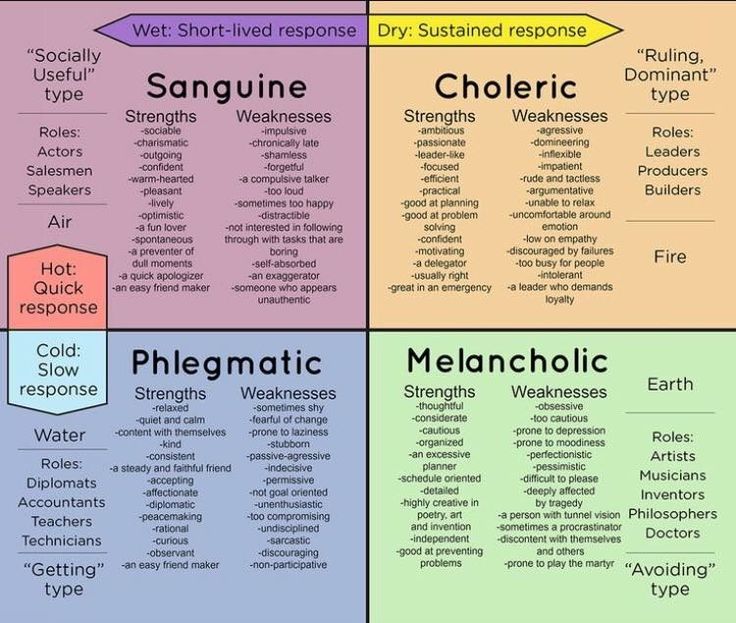 They also read blogs, listen to podcasts, and stay up to date on trends and recent news in the sales world.
They also read blogs, listen to podcasts, and stay up to date on trends and recent news in the sales world.
5. Emotional Intelligence
In tough moments, excellent salespeople don't throw a fit or blame others. They recognize and understand their emotions and regulate them during stressful situations. They also use EI to perceive the emotional state of the other party to have a better chance of closing the deal.
Bringing Out the Best in Your Sales Team
You probably didn't hire a team comprised entirely of alpha salespeople. And, let's be honest, that's probably a good thing. What you really need is the skillset to manage each of your salespeople in a way that will bring out the best in each of them and contribute to your company's bottom line.
Editor's note: This post was originally published in July 2017 and has been updated for comprehensiveness.
Topics: Sales Traits
Don't forget to share this post!
Classification of buyers by personality types and reactions to new products
Today, more and more professional salespeople are inclined to believe that in sales it is necessary to build, first of all, a system of relationships with customers.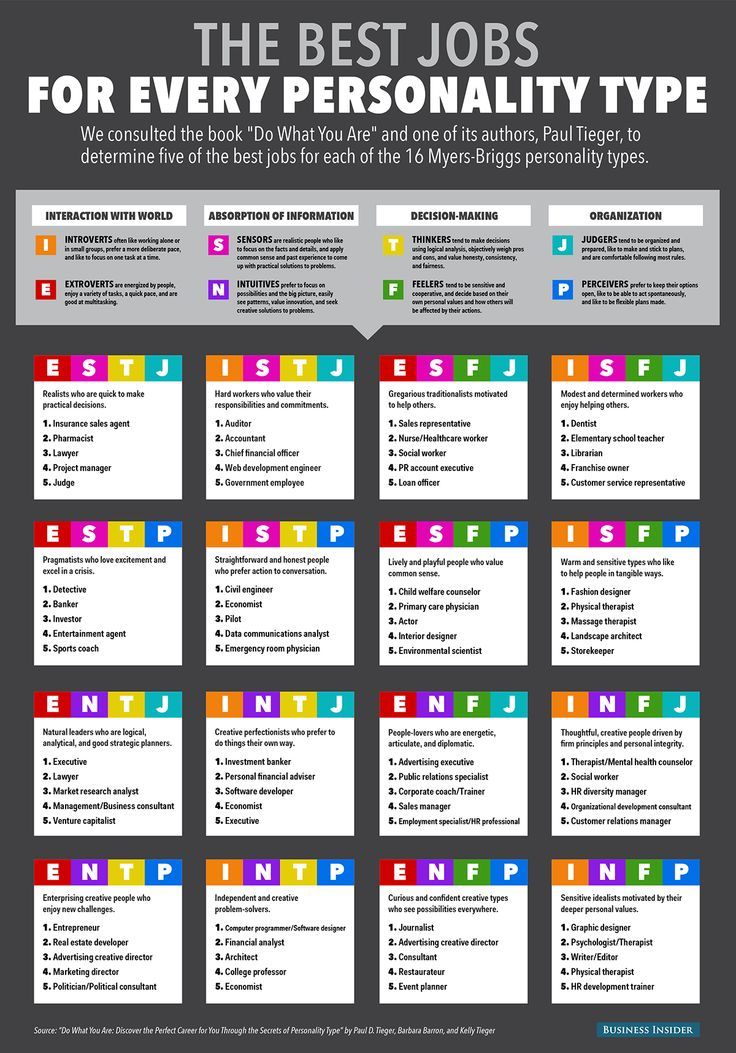 You need to understand whether the buyer needs advice, or wants to choose the product himself and make a purchase decision.
You need to understand whether the buyer needs advice, or wants to choose the product himself and make a purchase decision.
You may be interested
Trying to transfer experience from successful salespeople to beginners is not always successful, because most experienced professionals find effective methods through trial and error, and do not fully understand their own strategies.
However, there are conditional classifications of buyers by type and recommendations for working with them. To do this, you need to determine what behavioral type the buyer belongs to and how to work with him correctly.
Classification of buyers by psychological type of personality
Psychological type of personality: adjusted to differences
Peculiarities of buyer behavior. Such a customer first of all pays attention to the features of the product with which he does not agree (“Do you have anything unusual, not like everyone else?”). He expresses his wishes regarding the characteristics of the product using the particle “not” (I want the dress not to tear, the chair not to break).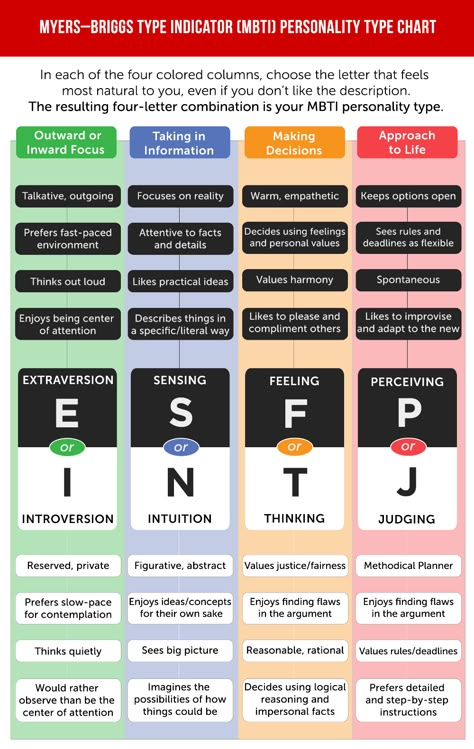
A difference-minded shopper first sorts out what they don't need and only then pays attention to what they're looking for.
Seller behavior strategy. To understand what the buyer wants, you need to listen to all his objections and talk about the benefits of the product in this form: "You will not be disappointed in the purchase", "You will not have to return it."
Psychological personality type: tuned to consent
Features of the buyer's behavior. The client focuses on what he likes. He expresses his wishes regarding the characteristics of the goods in a positive form: “strong”, “reliable”, “durable”.
Seller behavior strategy. The seller must talk about the benefits of the product, repeat the customer's request several times and get him to say "yes" several times.
Psychological type of personality: globalist
(perceives the world in integral images)
Peculiarities of buyer's behavior.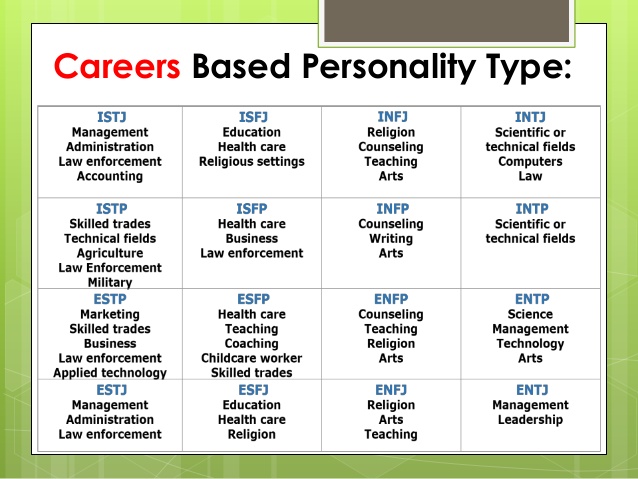 The customer focuses on the environment as a whole, on the general characteristics of the product (“Is it a good product in general?”). He perceives information globally, holistically.
The customer focuses on the environment as a whole, on the general characteristics of the product (“Is it a good product in general?”). He perceives information globally, holistically.
Seller behavior strategy. The seller must describe the characteristics of the brand, the supplier and his own company.
Psychological personality type: detailist
(perceives the world through details)
Peculiarities of buyer's behavior. The customer focuses on specific small details of the product (“How long will the cake cook in this oven exactly?”).
Seller behavior strategy. The seller must talk about the specific functions and qualities of the goods.
Psychological personality type: controlling
Peculiarities of buyer's behavior. The client first examines the product on his own, forms his opinion about it, decides to make a purchase, and only after that requires a detailed consultation from the seller.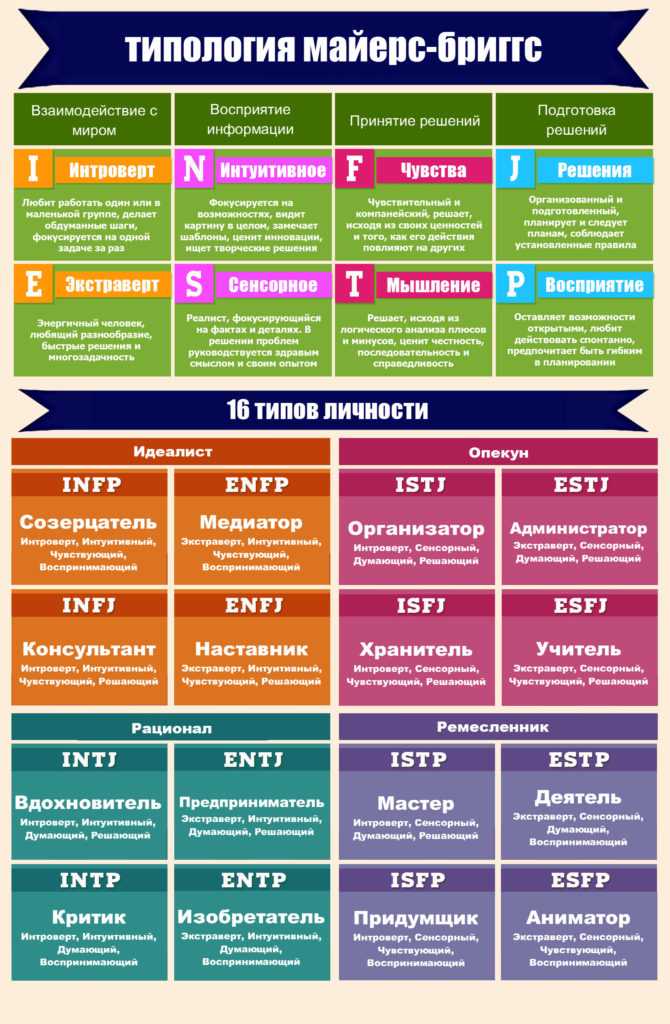
Seller behavior strategy. The seller must provide such a customer with complete and specific technical information without imposing his point of view.
Psychological type of personality: requiring support
Peculiarities of buyer's behavior. The client immediately approaches the seller, asks for advice, consultation, asks his opinion about the product of interest.
Seller behavior strategy. The seller must tell about the assessment of the product by experts (“Our specialists consider this product to be one of the best in its niche”), tell their opinion about the product (“I have already bought this one, and I am very satisfied”).
Psychological personality type: emotional
Features of the buyer's behavior. The client is distinguished by an informal manner of communication, can tell a story from life that has nothing to do with the product. Looking for something "cute" or "cute".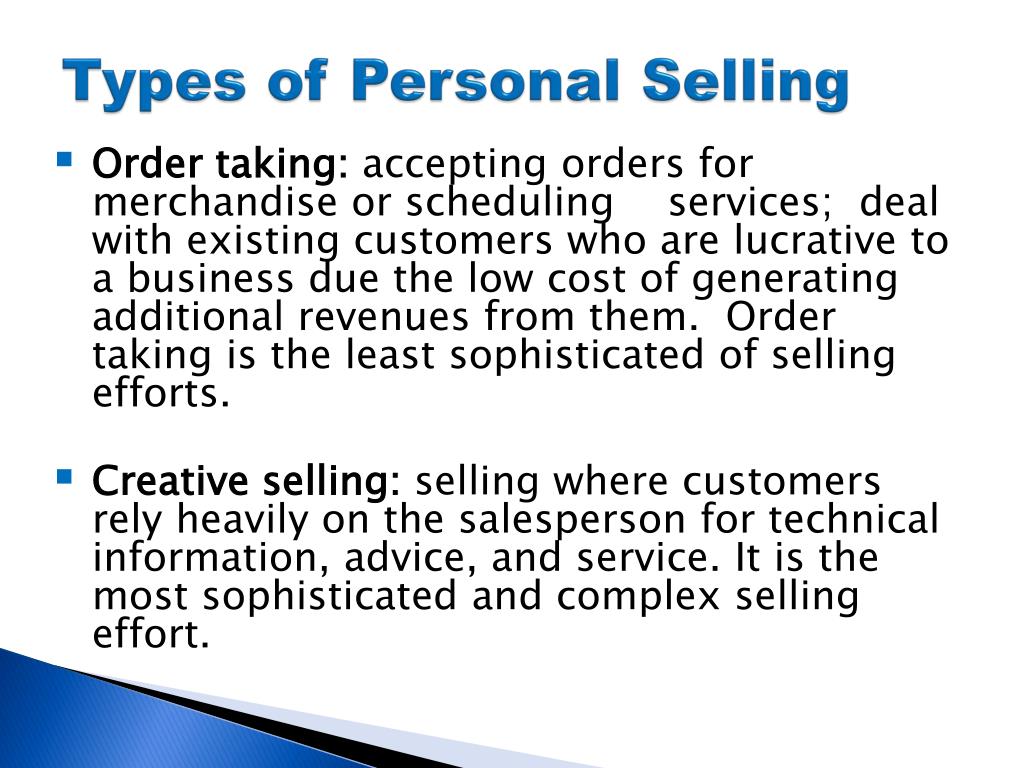 Makes purchases spontaneously, under the influence of emotions. Can spend a lot of money being impressed by a presentation or advertising.
Makes purchases spontaneously, under the influence of emotions. Can spend a lot of money being impressed by a presentation or advertising.
Seller behavior strategy. The seller should treat him friendly, show all the new items, demonstrate the product in action and tell in vivid detail about its prestige.
Psychological type of personality: logical
Peculiarities of buyer's behavior. The client conducts a conversation in a business style, is interested in the technical characteristics of the product (for this he studies the documentation or asks the seller questions). Analyzes the entire range.
Seller behavior strategy. The seller must ask questions about search criteria, provide expert opinions, provide market research results, and help compare products across categories. You can influence the decision to buy by talking about the additional benefits of the product.
Classification of buyers according to the speed of reaction to product innovations
Innovators (2 - 5%).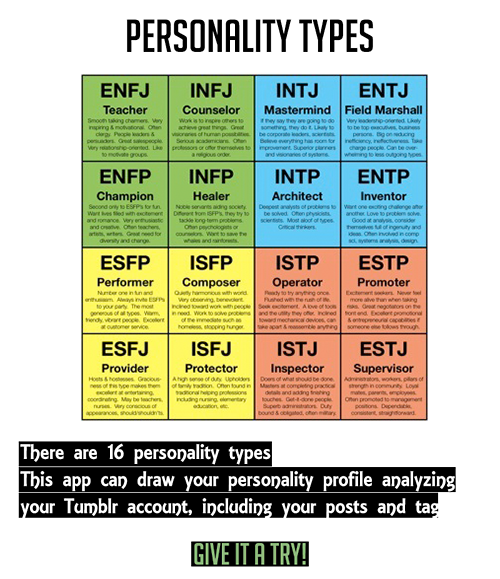 They are the first to react to novelties, they are risk-averse, they want to stand out from the crowd, they strive for self-affirmation. Innovators are mannered and self-centered, strive for leadership, want to draw attention to themselves by any means, including extravagant clothes. Sociable. Easily connect with people.
They are the first to react to novelties, they are risk-averse, they want to stand out from the crowd, they strive for self-affirmation. Innovators are mannered and self-centered, strive for leadership, want to draw attention to themselves by any means, including extravagant clothes. Sociable. Easily connect with people.
Activists (10 - 15%). They form an opinion in their social group, according to the psychological type of personality they are very active, they easily contact people. Purchases are made hastily, thoughtlessly, often under the influence of advertising
Progressive (25 - 35%). Provide mass sales of goods at the stage of their growth.
Materialists (35 - 45%). The belated majority of buyers who provide, the sale of goods at the stage of market saturation.
Conservatives (12 - 18%). Buyers who do not perceive novelties buy only goods that have been tested by time and other people.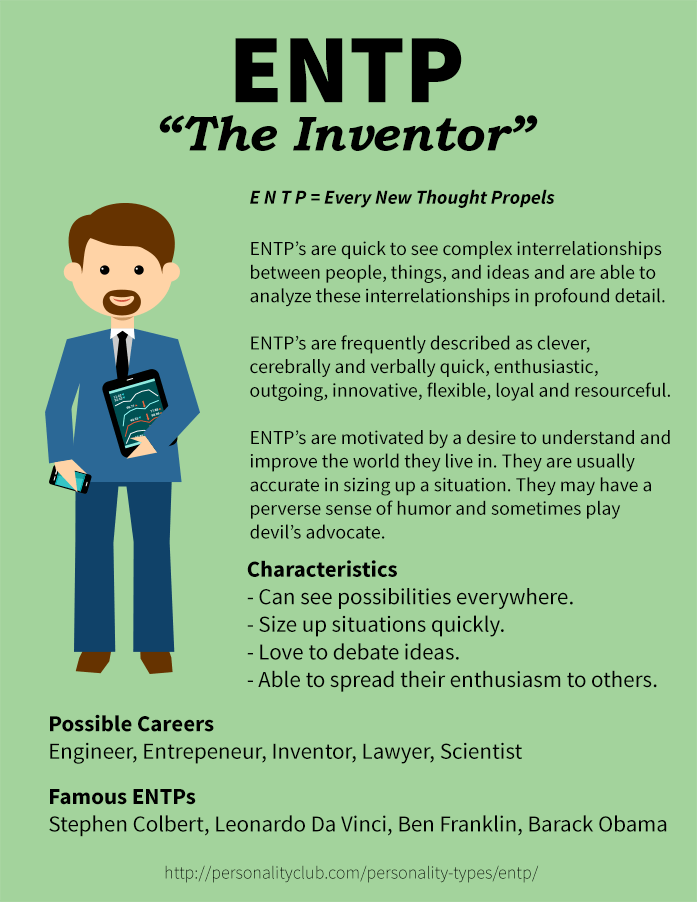
how to identify it and what to do next
Author: Sergei Viktorovich Shpitonkov, director of the consulting company Expert Consulting, which specializes in building effective sales management systems in Russian companies.
The business type of client is clients characterized by different levels of desires and capabilities with which we expect to complete the buying and selling process.
All sellers dream of having "good" customers in terms of the most important criteria - the desire and ability to purchase goods. A good buyer is someone who has the desire to buy a product and the money to pay for it.
However, there are no equal desires and opportunities for everyone with whom we are trying to make a deal. Someone has a desire, but there is no opportunity to purchase goods. Perhaps the customer preferred your competitor's product and has already spent the money. Maybe the client is not buying right now, but only thinking.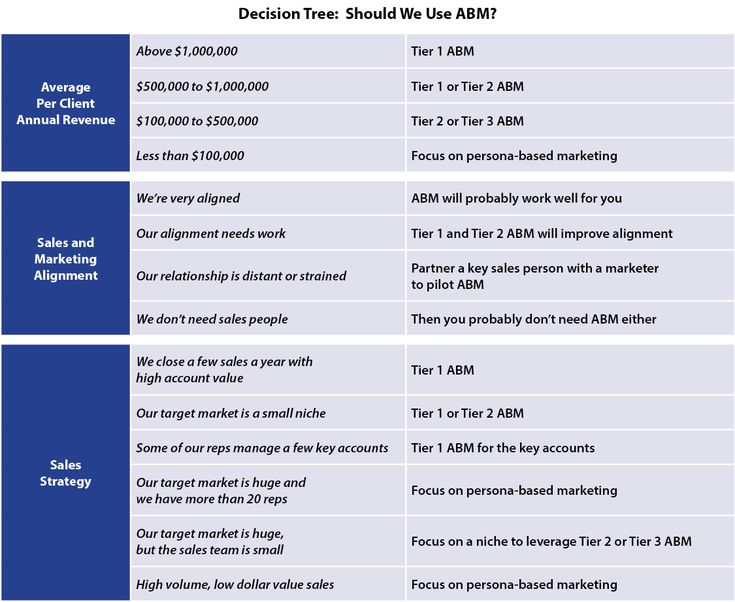 Someone has the opportunity, but he does not need your product. It is important to remember this and properly allocate your resources. The main criterion should be one: the volume of profitable sales to this client. We should spend 80% of our resources on those who give us 80% of sales.
Someone has the opportunity, but he does not need your product. It is important to remember this and properly allocate your resources. The main criterion should be one: the volume of profitable sales to this client. We should spend 80% of our resources on those who give us 80% of sales.
It is important to single out four business types of customers and the salesperson's tasks in relation to each of them (Table 1).
Table 1. Business types of customers
| Customer type | Sales task |
| Wants and can buy | Maintain and develop good relationships by increasing sales to this customer. Using his positive experience with the product and loyalty, look for new customers through him, improve the image of your company and product. |
| Wants but cannot buy | Find out the cause. Achieve priority for your product. Give advice, provide necessary conditions (for example, credit, deferred payment, discount, etc.) Wait and make a sale |
| Don't want to but can buy | Find out the reason for the reluctance to buy the product and try to eliminate it by talking about the benefits of the product or providing additional conditions. Conduct a test, provide a temporary use, stimulate desire with a gift, participation in a prize draw, etc. Close the deal. |
| Unwilling and unable to buy | Find out the reasons and make a decision, stimulate desire and provide conditions that facilitate the purchase of goods, or refuse this customer. |
It is very important to have a clear understanding of the customer's business type.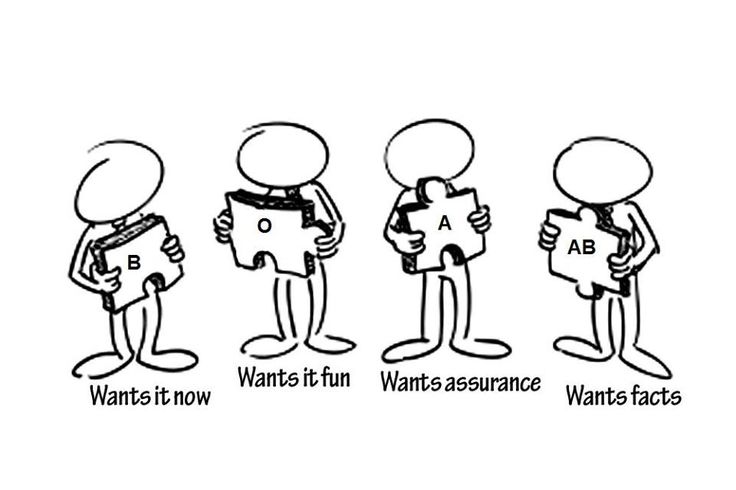 The fulfillment by the seller of certain tasks and, ultimately, the conclusion of the transaction will depend on this.
The fulfillment by the seller of certain tasks and, ultimately, the conclusion of the transaction will depend on this.
Each person is a unique personality, which is the bearer of a variety of properties. What are the characteristics that distinguish one person from another? We list the main ones:
- feeling;
- perception;
- thinking;
- memory;
- will;
- emotions;
- value orientations;
- roles;
- social installations;
- temperament;
- self-consciousness.
When starting to communicate, it is necessary to understand and focus on the peculiarities of their personality. It is necessary to know the psychological types of clients, understand how to respond to certain personality traits that will manifest themselves when establishing contact, and be ready to interact with them.
The one who is aware of his influence on others is the one who convinces better.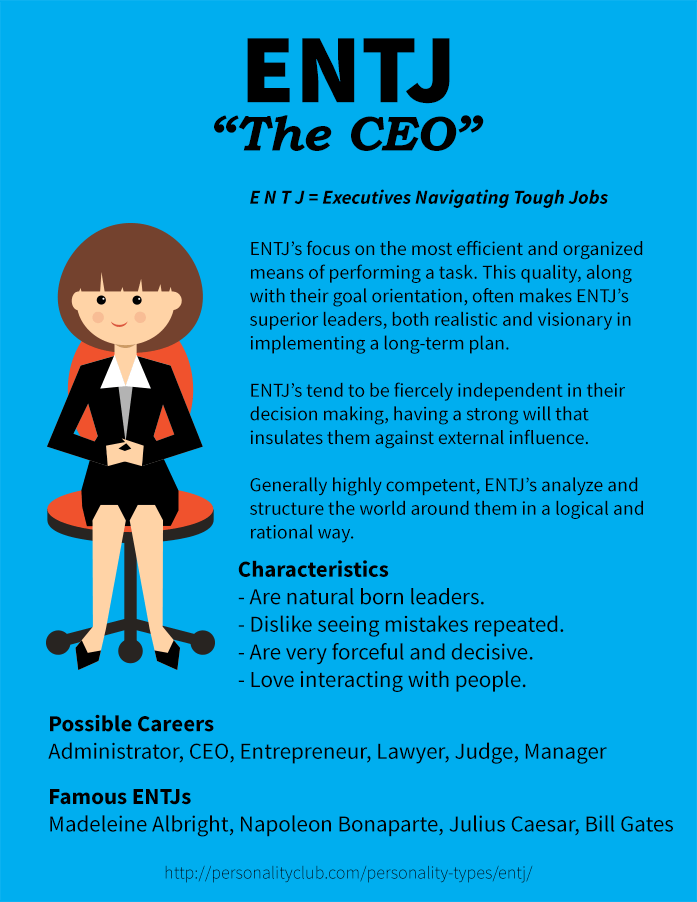 The one who convinces better is the one who sells better. To be able to establish relationships, understand a person and tune in to his “wave” is one of the most important tasks of the seller.
The one who convinces better is the one who sells better. To be able to establish relationships, understand a person and tune in to his “wave” is one of the most important tasks of the seller.
- Enter into a dialogue with the customer.
- Determine what psychological type he belongs to.
- Tune in to the "wave" of the client.
- Make contact.
- Make a deal.
How to tune in to the “wave” of the client:
- speak in the same manner as the client;
- take the same posture as the client;
- use gestures similar to those used by the client;
- the intonation and timbre of the voice should also be similar;
- clothing should be in harmony with, or at least not very different from, the client's clothing.
The four most important psychological types of clients:
- analytical;
- purposeful;
- harmonious;
- emotional.
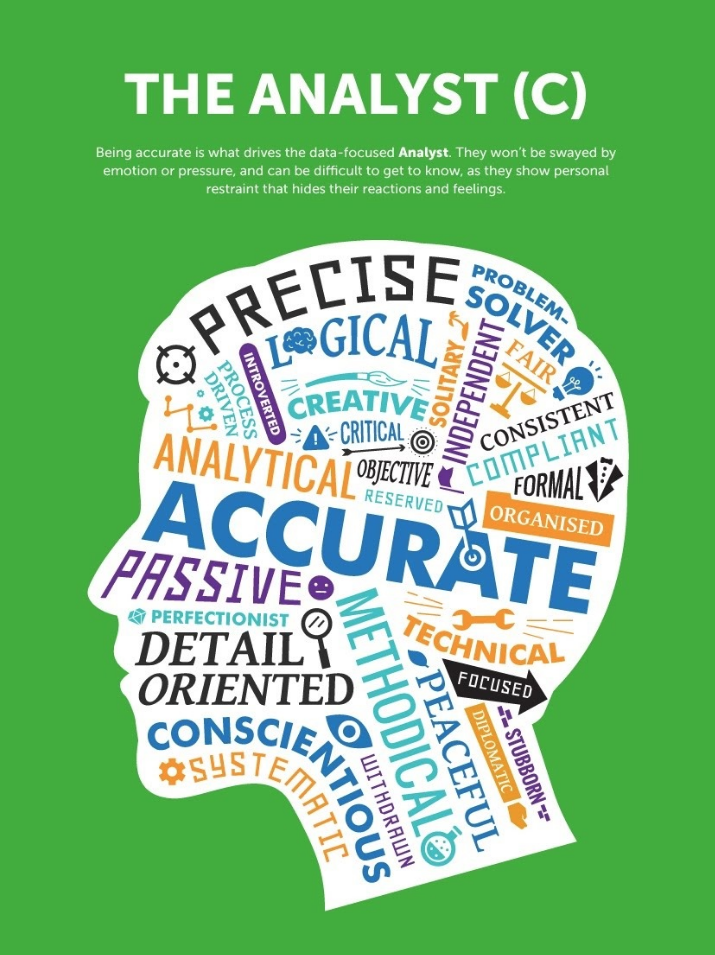
At the same time, it is important for the seller to answer two questions:
- What psychological type does the client belong to?
- How to work with him competently?
The following are the main psychological characteristics of the types of customers and the necessary actions of the seller in order to make contact with them, tune in to the necessary "wave" and complete the transaction.
3.1. Client type: Analytical (how?)
Characteristics. Asks detailed questions. Assesses your competence in terms of time spent. Is receptive. Punctual, fact checking. Strives for perfection. Follows directions and follows rules. Likes precision. Thinks critically. Slow in speech, movements and decisions. He speaks quietly. A firm handshake. Keeping a distance. Looks into the eyes from time to time. Gestures are restrained.
Dangers. Doesn't work directly. Slow. Avoids risk. He speaks quietly. Cautious.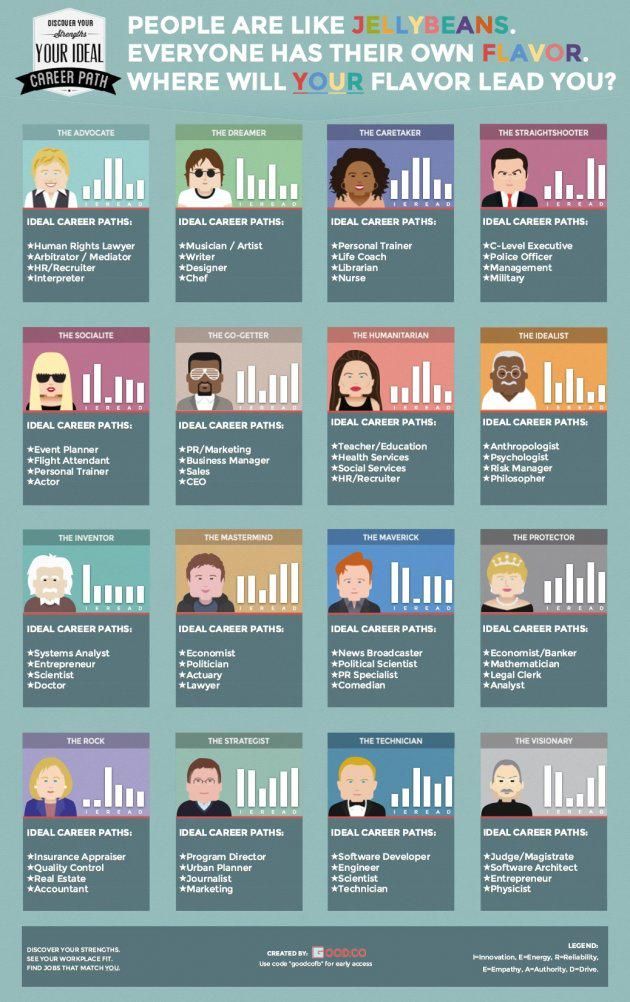 Asks for permission. Unpersistent. Asks a lot of questions. Inflexible.
Asks for permission. Unpersistent. Asks a lot of questions. Inflexible.
Merchant actions. Express your thoughts clearly and in detail. To talk slowly. Provide accurate data and be able to prove it. Give the client a complete picture. Be logical. Don't push the client to a quick decision. Don't try to dominate. Dress conservatively, wear dark colors.
Use. Saving money. Getting satisfaction.
3.2. Client type: Purposeful (what? when?)
Characteristic. categorical. Tends to tell others what to do. We are intolerant of mistakes. Doesn't like being given advice. Likes to compete. Set to win. Does not get lost in difficult situations. Loves change. Stubborn and quick-tempered. Listens carefully. Likes to control the situation. Cold and independent. A firm handshake. He speaks loudly. Likes order.
Dangers. Impenetrable. Restrained. Taciturn. Loves details and facts. Shows interest in what gives a quick result. First act, then think. It is harsh and rough.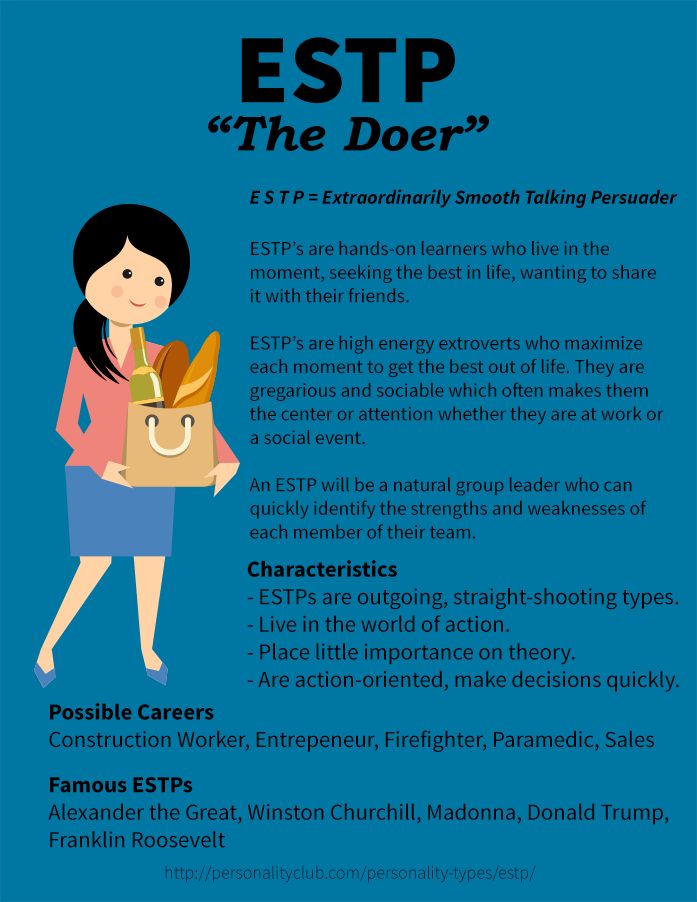 The prestige of his personality is of great importance. Distrustful.
The prestige of his personality is of great importance. Distrustful.
Seller's actions. Prepare carefully for the meeting. Be concise. Be energetic and get down to business quickly. Be businesslike and professional. Offer a choice. Be persistent. Emphasize the relevance of the proposal.
Use. Saving time. Merit recognition.
3.3. Client type: Harmonic (why?)
Characteristic. Appreciates and knows how to maintain relationships with people. Likes to take care of. Doesn't like to take the initiative. Dedicated and caring. Doesn't like change. Patient and friendly in communication. Able to concentrate on tasks. Good listener. Avoids quarrels. Doesn't hold out hands. Conducive to casual conversation. Creates an informal work environment.
Dangers. Not interested in facts and details. Relationships come first. Prone to long conversations. Biased. Sentimental. May procrastinate. Subjective. He does not like to set goals for himself and achieve them.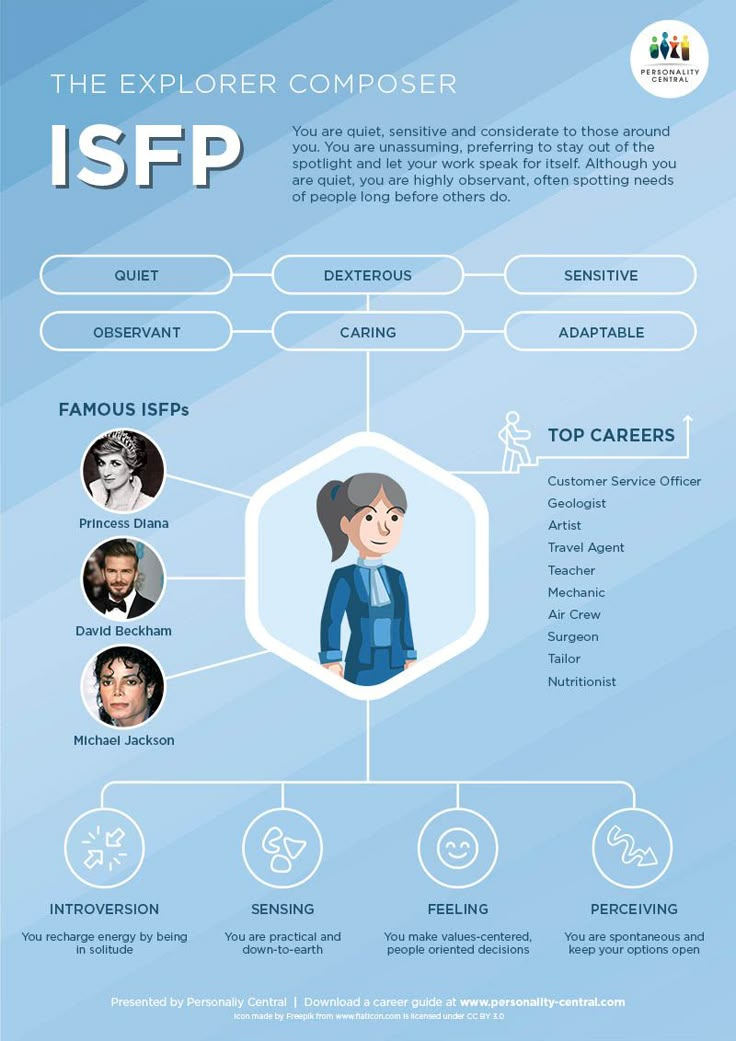 Resentful.
Resentful.
Seller's actions. To talk slowly. Be friendly. Ask personal questions. Extend your hand in greeting. Be cheerful in communication. Behave in a more businesslike and professional manner. Be trustworthy. Offer your help. Be consistent. Emphasize your desire to help. Show interest. Don't be overly pushy. Don't push or rush.
Use. Confession. Comfort conditions
3.4. Client type: Emotional (who?)
Characteristic. Ready for risk. Initiator. Eloquent and verbose. Energetic. Likes to have fun. Likes to help. Disorganized. Emotional. Optimist. inattentive listener. Original. Able to convince. Unpredictable. Doesn't like being alone. Prone to exaggeration and generalizations. A firm handshake. He speaks quickly and loudly. Looks into the eyes. Dress brightly.
Dangers. Acts directly. Likes to take risks. Tends to break agreements. Likes to make categorical statements. Passionate about ratings. Inattentive to details. Unassembled Makes decisions quickly.